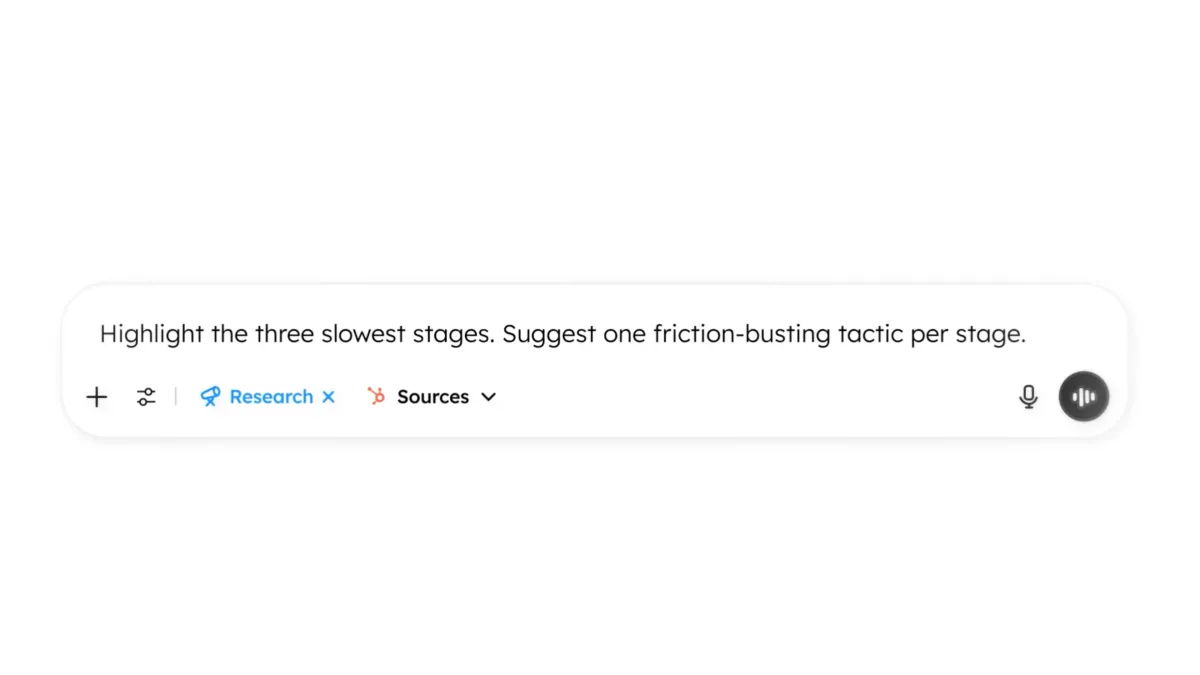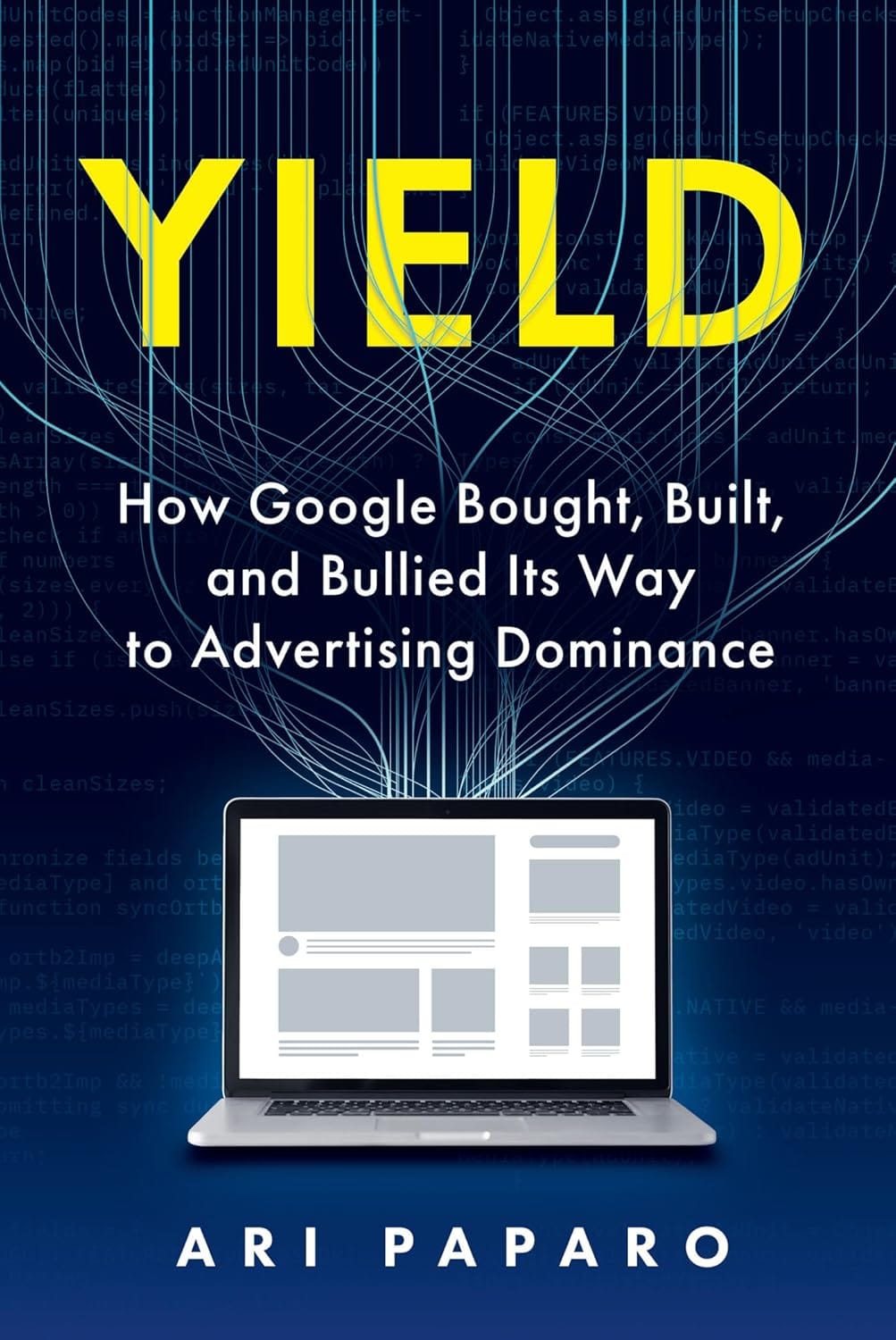
HubSpot announced on June 4, 2025—just four days ago—that it has become the first customer relationship management platform to launch a deep research connector with ChatGPT. The integration allows more than 250,000 businesses that rely on HubSpot as their primary customer data repository to access artificial intelligence-powered analysis directly within OpenAI's conversational interface.
Get the PPC Land newsletter ✉️ for more like this
The partnership addresses a fundamental challenge in modern business intelligence: the gap between raw customer data and actionable insights. According to HubSpot's internal research, over 75% of their customers already use ChatGPT, indicating widespread adoption of AI tools among their user base. This connector eliminates the need to export data between platforms, enabling real-time analysis of customer information stored within HubSpot's CRM system.
The technical implementation allows users to query their HubSpot data using natural language prompts within ChatGPT. Marketing teams can request analysis such as "find my highest-converting cohorts from recent contacts and create a tailored nurture sequence to boost engagement," while sales representatives can ask the system to "segment my target companies by annual revenue, industry, and technology stack. Based on that, identify the top opportunities for enterprise expansion."

Yield: How Google Bought, Built, and Bullied Its Way to Advertising Dominance
A deeply researched insider’s account of Google’s epic two-decade campaign to dominate online advertising by any means necessary.
Nate Gonzalez, Head of Business Products at OpenAI, emphasized the significance of contextual data access in AI applications. According to Gonzalez, "Launching the HubSpot deep research connector means businesses and their employees get faster, better insights because ChatGPT has more context." The integration represents a departure from traditional AI tools that operate in isolation from company-specific data sources.
The connector's architecture ensures data security through permission-based access controls. Individual users can only view information they have authorization to access within their HubSpot instance. Sales representatives, for example, will only see pipeline data for deals within their assigned territories or accounts. This granular permission system maintains the same access restrictions that exist within HubSpot's native interface.
Customer data processed through the connector remains separate from ChatGPT's training datasets. According to the announcement, information accessed through the HubSpot deep research connector is not used for AI model training, addressing privacy concerns that have emerged around enterprise AI implementations.
Colin Johnson, Senior Manager of CRM at Youth Enrichment Brands, provided insight into the practical applications of the connector. According to Johnson, "The HubSpot connector is like having an extra analyst on the team, empowering sales reps to identify risks, opportunities, and next best actions." Johnson highlighted the accessibility of the tool for non-technical users, noting that the ability to "talk directly to my data" represents a significant operational advantage.
The integration extends beyond sales applications to encompass customer success and support functions. Customer success teams can utilize the connector to "identify inactive companies with growth potential and generate targeted plays to re-engage and revive pipeline." Support departments can analyze seasonal patterns in ticket volume to forecast staffing requirements for upcoming quarters.
Karen Ng, Senior Vice President of Product and Partnerships at HubSpot, positioned the connector within the company's broader artificial intelligence strategy. According to Ng, "We're building tools that help businesses lead through the AI shift, not just adapt to it." The integration specifically targets small and medium-sized businesses that may lack dedicated data analysis resources.
The deployment process requires minimal technical configuration. Organization administrators can activate the connector by accessing ChatGPT's interface, enabling the HubSpot deep research connector, selecting HubSpot as a data source, and completing account authentication. Once enabled at the organizational level, individual users can toggle the connector on and begin querying their data immediately.
Availability spans across HubSpot's customer base, encompassing all service tiers for users with paid ChatGPT subscriptions. In European Union markets, compatibility includes Team, Enterprise, and Education plans, while other regions support Team, Enterprise, Pro, Plus, and Education tiers. The system responds to queries in multiple languages, matching the language used in user prompts.
The technical specifications indicate that the connector maintains HubSpot's existing user interface paradigms while extending functionality into ChatGPT's environment. Users can generate insights within ChatGPT and subsequently implement recommended actions within HubSpot's native tools, including automated workflows and customer success workspaces.
This development represents a significant shift in how customer relationship management platforms approach artificial intelligence integration. Rather than developing proprietary AI capabilities, HubSpot has opted to connect its data infrastructure with established AI providers, potentially setting a precedent for similar partnerships across the software industry.
The timing of this announcement coincides with increased enterprise adoption of large language models for business intelligence applications. Companies are seeking ways to leverage AI capabilities without compromising data security or requiring extensive technical implementation. The HubSpot connector addresses these requirements by maintaining existing security protocols while providing advanced analytical capabilities.
Marketing teams can leverage the integration to analyze customer engagement patterns, identify high-value segments, and develop targeted campaigns based on behavioral data. The ability to generate nurture sequences directly from customer data analysis streamlines campaign development processes that traditionally required manual data export and analysis.
For the marketing community, this integration signals a broader trend toward AI-powered customer intelligence platforms. Traditional marketing analytics tools often require specialized knowledge to extract meaningful insights from customer data. The natural language interface provided by the ChatGPT integration democratizes access to advanced analytics, enabling marketing professionals without technical backgrounds to perform sophisticated data analysis.
The implications extend beyond individual tool functionality to encompass marketing workflow optimization. Teams can now move from data analysis to campaign implementation within integrated platforms, reducing the time required to translate insights into marketing actions. This integration may influence how marketing technology vendors approach AI implementation, potentially favoring partnerships with established AI providers over proprietary development.
Timeline
- June 4, 2025: HubSpot announces the first CRM deep research connector with ChatGPT
- June 8, 2025: Four days after announcement, integration becomes available to customers
- Current: Over 250,000 businesses use HubSpot as primary customer data source
- Customer adoption: 75% of HubSpot customers already use ChatGPT according to internal survey
Related stories
- March 2025: Performance marketing basics remain challenging despite AI advances - Industry analysis revealed that up to 25% of performance media spend is being misallocated, with many organizations adopting AI-driven platform features without proper governance or data integrity controls
- January 2025: AI and digital channels emerge as top priorities in 2025 advertising outlook - Mediaocean's survey showed generative AI adoption increased from 55% in 2023 to 75% in 2024, surpassing Connected TV as the leading consumer technology trend
- May 2025: 20 PPC sites marketers can't ignore in 2025 - Analysis identified essential industry publications, with many expanding coverage of artificial intelligence applications in advertising and programmatic developments

